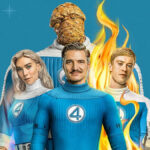Ridley Scott’s 1982 sci-fi noir classic Blade Runner is a landmark film that has inspired countless movies in the decades since its release. Set in a gritty, neon-soaked vision of future Los Angeles, the movie follows world-weary ex-cop Rick Deckard (Harrison Ford) as he hunts down rogue bioengineered humans known as replicants. With its stunning visuals, philosophical themes exploring the nature of humanity, and Vangelis’ hauntingly beautiful score, Blade Runner is a cinematic experience like no other.
If you’re craving more movies that capture a similar atmosphere and delve into thought-provoking sci-fi concepts, look no further. Here are 18 of the best films to watch if you love Blade Runner:
1. Blade Runner 2049 (2017)
The most obvious choice is Blade Runner‘s belated sequel, set 30 years after the events of the original film. Directed by Denis Villeneuve, Blade Runner 2049 follows a young blade runner named K (Ryan Gosling) as he unearths a secret that leads him on a quest to find Deckard, who has been missing for decades. The movie expands upon the themes and world-building of its predecessor while carving its own identity with Roger Deakins’ breathtaking cinematography.
2. Metropolis (1927)
Fritz Lang’s hugely influential silent film is an expressionistic sci-fi epic set in a futuristic city marked by a divide between the wealthy elite and the oppressed working class. With its groundbreaking special effects and production design, Metropolis laid the visual template for countless sci-fi dystopias to come, including Blade Runner.
3. Akira (1988)
Katsuhiro Otomo’s landmark anime unfolds in the sprawling megalopolis of Neo-Tokyo, built on the ashes of the original city destroyed by a mysterious explosion. The film follows teenage biker gang member Tetsuo as he develops powerful telekinetic abilities that threaten to unleash untold destruction. Akira‘s kinetic animation and immersive cyberpunk setting were a clear influence on Blade Runner‘s future noir style.
4. Brazil (1985)
Terry Gilliam’s Brazil is a darkly satirical vision of a retro-futuristic world crushed under the weight of bureaucracy, consumerism and authoritarian control. When unassuming government worker Sam Lowry (Jonathan Pryce) gets caught up in a clerical error, he becomes entangled with the woman literally haunting his dreams. Like Blade Runner, the film presents a richly detailed dystopia that reflects the anxieties of its era.
5. Ghost in the Shell (1995)
Mamoru Oshii’s philosophical cyberpunk anime follows cyborg federal agent Motoko Kusanagi as she tracks down a mysterious hacker known as the Puppet Master. The film grapples with questions of consciousness, memory and what it means to be human in an increasingly technological world – all ideas that Blade Runner also explores. Ghost in the Shell‘s blend of 2D and CGI animation captures a moody urban future that feels very much in line with Ridley Scott’s film.
6. Minority Report (2002)
Based on a story by Philip K. Dick (who also wrote Do Androids Dream of Electric Sheep?, the basis for Blade Runner), Steven Spielberg’s Minority Report is set in a near-future where a special police unit arrests criminals before they commit their crimes based on foreknowledge from psychics. When the unit’s chief John Anderton (Tom Cruise) is himself accused of a future murder, he goes on the run to prove his innocence. The movie shares Blade Runner‘s slick visual aesthetic and noir-inflected paranoid thriller plot.
7. The Matrix (1999)
The Wachowskis’ groundbreaking sci-fi action film posits a world where machines have enslaved humanity in a simulated reality known as the Matrix. Hacker Neo (Keanu Reeves) is recruited by a group of rebels to bring down the system and free mankind. The Matrix builds on Blade Runner‘s questioning of the nature of reality and what constitutes humanity.
8. Gattaca (1997)
Andrew Niccol’s feature debut takes place in a “not-too-distant future” where genetic engineering has created a new class system. An “in-valid” man (Ethan Hawke) assumes the identity of a genetically superior “valid” in order to pursue his dream of space travel. Like Blade Runner, Gattaca uses a sci-fi premise to explore prescient social issues surrounding technology, discrimination and the human condition.
9. Dark City (1998)
Alex Proyas’ mind-bending neo-noir unfolds in a city where the sun never rises, and a man (Rufus Sewell) wakes up with no memory, accused of murders he doesn’t remember committing. As he investigates, he uncovers a vast conspiracy involving alien beings who can alter physical reality and human memories. Dark City is a stylish, cerebral sci-fi mystery that, like Blade Runner, questions the nature of identity and memory.
10. Twelve Monkeys (1995)
Inspired by the 1962 French short film La Jetée, Terry Gilliam’s time-travel thriller stars Bruce Willis as a convict sent back from the post-apocalyptic future to gather information about the virus that wiped out most of humanity. The movie’s grungy, retro-futuristic aesthetic and plot twists make it a mind-bending sci-fi experience in the vein of Blade Runner.
11. Alphaville (1965)
Jean-Luc Godard’s New Wave take on dystopian sci-fi stars Eddie Constantine as secret agent Lemmy Caution, who infiltrates the technocratic dictatorship of Alphaville to track down a rogue scientist. Shot in high-contrast black and white with philosophical voiceover narration, the film creates an otherworldly atmosphere using real Paris locations, much like how Blade Runner transformed contemporary L.A. into a futuristic noir cityscape.
12. Upgrade (2018)
Leigh Whannell’s cyberpunk action flick follows Grey Trace (Logan Marshall-Green), a technophobe who is implanted with an experimental AI chip called STEM after being paralyzed in a brutal mugging that also killed his wife. STEM gives Grey superhuman fighting abilities, which he uses to hunt down the culprits. Upgrade combines bloody, visceral thrills with an exploration of the relationship between man and machine, not unlike Blade Runner.
13. Dredd (2012)
Set in the violent, post-apocalyptic metropolis of Mega-City One, Pete Travis’ gritty adaptation of the 2000 AD comics stars Karl Urban as the helmeted, uncompromising Judge Dredd. The film largely takes place in a massive housing block controlled by a ruthless drug lord, where Dredd and his psychic rookie partner must fight their way to the top floor. With its rain-soaked, neon-lit aesthetic and brutal action, Dredd feels very much in the spirit of Blade Runner.
14. Strange Days (1995)
Kathryn Bigelow’s near-future thriller follows a black marketeer of SQUID discs (which allow users to experience other people’s memories) as he uncovers a conspiracy in the final days of 1999. The film’s portrayal of a society cracking under the weight of economic disparity, cultural upheaval and technological escapism echoes Blade Runner‘s dystopian vision.
15. Ex Machina (2014)
Alex Garland’s cerebral sci-fi chamber piece centers on the Turing test conducted by programmer Caleb Smith (Domhnall Gleeson) on Ava (Alicia Vikander), an artificially intelligent humanoid robot created by eccentric tech billionaire Nathan Bateman (Oscar Isaac). As in Blade Runner, the film uses its high-concept premise to explore questions of consciousness, empathy and what defines humanity.
16. A.I. Artificial Intelligence (2001)
Initially developed by Stanley Kubrick before being taken over by Steven Spielberg, A.I. takes place in a future where global warming has submerged coastal cities and a highly advanced android child named David (Haley Joel Osment) longs to become a real boy so he can regain the love of his human mother. The film’s depiction of a society dependent on synthetic beings wrestling with their emerging sentience is very much in conversation with Blade Runner‘s replicants.
17. Looper (2012)
Rian Johnson’s inventive sci-fi thriller stars Joseph Gordon-Levitt as Joe, a “looper” or hitman who kills targets sent back in time by a crime syndicate from the future. When his older self (Bruce Willis) is sent back as his next target, Joe sparks an existential chase across time. The movie’s vision of a near future of economic collapse and widespread desperation, as well as its grappling with questions of fate vs. free will, echo key themes in Blade Runner.
18. Solaris (1972)
Andrei Tarkovsky’s Soviet sci-fi classic, based on the novel by Stanisław Lem, follows a psychologist sent to a space station orbiting the mysterious planet Solaris, where the crew have fallen into emotional crises. As the psychologist deals with the reappearance of his long-dead wife, Tarkovsky uses the sci-fi trappings to explore the nature of human memory, grief and our relationship to the unknown. Like Blade Runner, Solaris is a slow, contemplative film that uses genre to investigate deeper philosophical questions.
From the silent era to recent blockbusters, these 18 films build on Blade Runner‘s legacy in their own unique ways. Whether it’s through exploring similar themes, expanding the boundaries of cinematic sci-fi, or creating indelible dystopian visions, each movie here is essential viewing for fans of Ridley Scott’s undisputed classic.
So the next time you feel the urge to walk the neon-lit streets of 2019 Los Angeles with Deckard and his replicant quarry, consider taking a detour into one of these other mesmerizing sci-fi worlds. You’ll find they offer their own rewards and revelations that will keep you pondering what it means to be human in an age of artificial intelligence, corporate dominance and social decay. The rain-soaked future is yours to discover.





